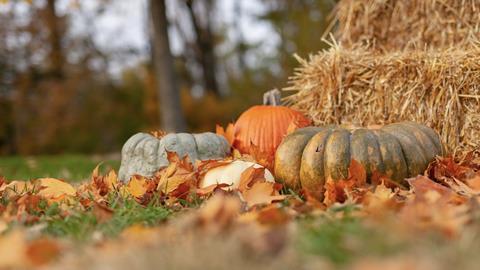As we approach a season of thankfulness, author Drew Cordell explores whether it is possible to cultivate gratitude in the void
During my teenage years, as an Australian living in the US, I experienced the quintessential American Thanksgiving. A charming Pennsylvania farming family hosted us, etching memories of the delectable aroma of creamed pumpkin into my consciousness, defying my teenage aversion to vegetables.
Yet, it wasn’t just the flavours that lingered; it was the image of a burly rancher who proceeded to pray over our Thanksgiving dinner. Expressing gratitude for family, his daughters and his wife, he shed tears of raw emotion. The juxtaposition of his alpha exterior with this sincere act left an indelible mark on me as a young man.
Read more:
Can the Bible teach us anything about depression?
Working for peace in our politically divided world is essential.
Sex, sexuality and the purity culture
Was Halloween originally a Christian festival?
In today’s world, gratitude is in vogue. Wellness advisors flood social feeds, extolling the benefits of expressing thanks in our daily lives. While it’s tempting to dismiss this as a passing trend, few would argue that gratitude is a futile endeavour.
However, for those who reject the notion of a higher power, the practice of gratitude raises a poignant question. Can one be thankful to no one? Saying thanks implies receiving from somewhere, a concept seemingly irrelevant to those who perceive the Universe as random and purposeless.
Acknowledging those more sceptical, particularly atheists, who might accuse me of a “god of the gaps” argument, I’m not advocating for attributing gratitude to a divine entity simply due to a lack of scientific explanation. Instead, I propose that the significance of gratitude contributes to the broader argument— that perhaps God is the best explanatory framework for the intricacies of our lives. Whether it’s kindness to neighbours, exceeding expectations at work, savouring nature, or expressing gratitude for these moments, contemplating the worldview that best harmonises these facets is worthwhile.
Get access to exclusive bonus content & updates: register & sign up to the Premier Unbelievable? newsletter!
God, it seems, doesn’t offer the conclusive proof we often crave. Rather than a definitive sign, it seems we are given clues to his existence. The decision to pursue further understanding is then left in our hands.
As Americans prepare for this Thanksgiving, indulging in spectacular feasts, one question lingers: To whom or what do you extend your gratitude? Amidst the flavours of that creamed pumpkin, I invite you to ponder the question over this holiday.
Drew Cordell is a business consultant who has worked alongside some of the world’s most successful businesses and their leaders in an extensive corporate career in both London and Australia. His soon-to-be-released book Honest Christianity: Why People Choose to Believe will be available on Amazon and in all good bookstores.

























